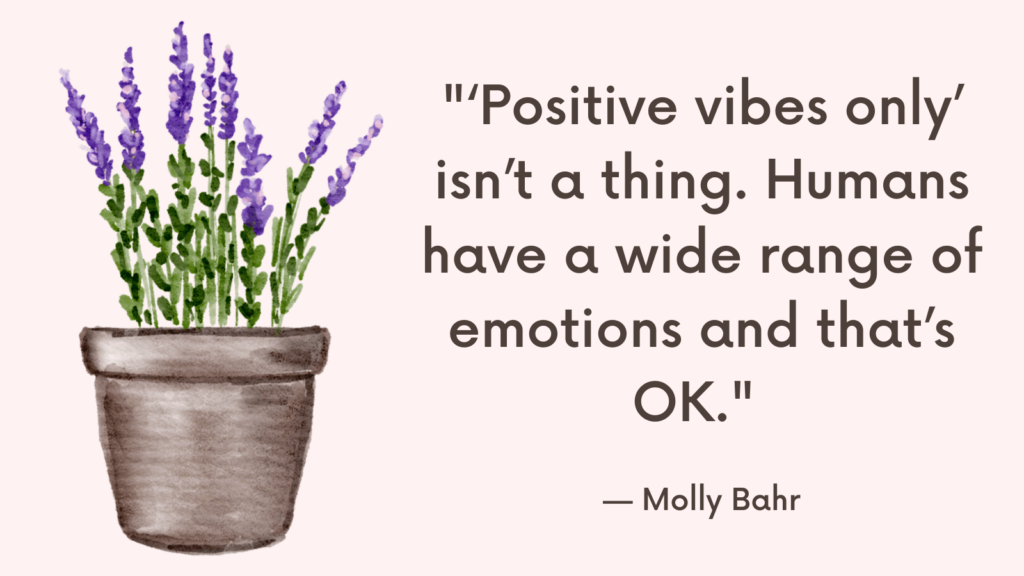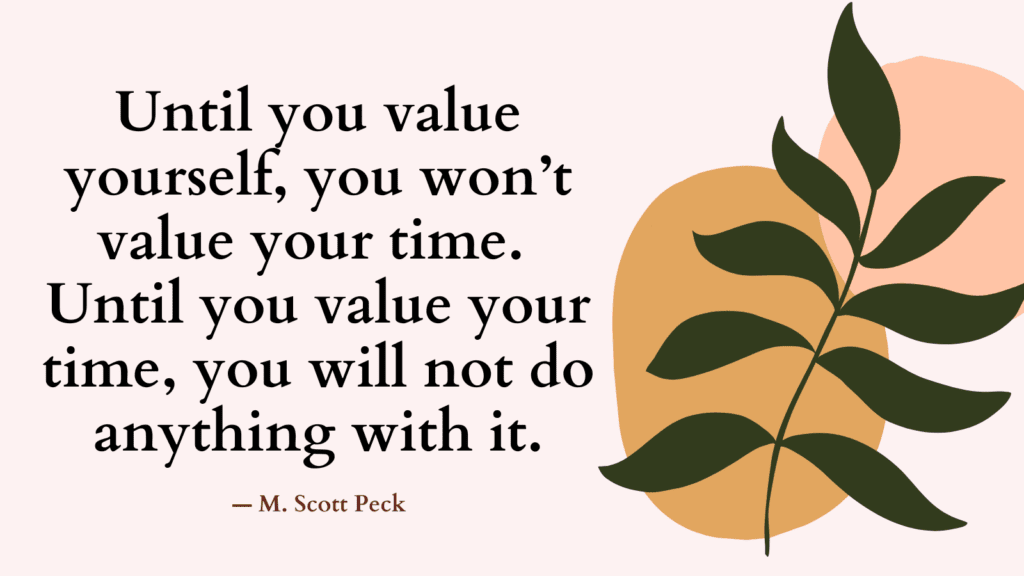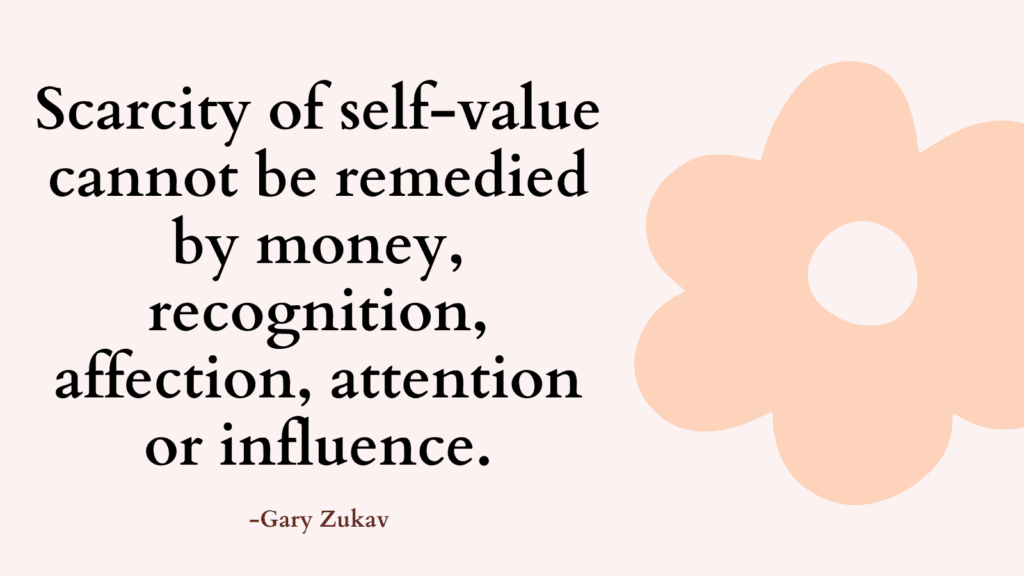This post contains some of the best affirmations for OCD.
Affirmations For OCD
1. I am capable of overcoming my OCD.
2. My thoughts do not define me.
3. I am in control of my mind and body.
4. I am worthy of love and respect, despite my OCD.
5. I am strong and resilient.
6. My OCD does not define me as a person.
7. I am capable of living a happy and fulfilling life, despite my OCD.
8. I am not alone in this struggle.
9. I have the ability to overcome my compulsions.
10. I am strong enough to resist the urges and compulsions.
11. I am worthy of peace and happiness.
12. I have the power to challenge my OCD thoughts and fears.
13. My OCD does not have the power to control me.
14. I can find peace and calm in the midst of anxiety and uncertainty.
Related: OCD vs. Perfectionism
15. I am loved and valued, regardless of my obsessions and compulsions.
16. I choose to let go of my need for control.
17. I am deserving of a life free from OCD.
18. I trust myself to make good decisions, even when OCD tries to interfere.
19. I am building resilience every day.
20. My OCD thoughts are just thoughts; they do not have power over me.
21. I am capable of breaking free from my rituals and compulsions.
22. I love and accept myself, flaws and all.
23. I am capable of creating positive change in my life.
24. I can find healthy ways to cope with anxiety and stress.
25. I am willing to face my fears and challenge my OCD.
26. I trust in my ability to handle difficult situations.
27. I recognize that seeking help is a sign of strength, not weakness.
28. I am worthy of success and joy, despite my OCD.
Related: Is It ROCD Or Am I Not In Love? Top 4 Powerful Ways to Overcome Relationship Anxiety And ROCD
29. I am capable of finding pleasure and satisfaction in life, even when OCD tries to interfere.
30. I am confident in my ability to manage my OCD symptoms.
31. I am open to learning new ways to cope with OCD.
32. I am empowered to overcome my OCD fears and anxieties.
33. I trust myself to make progress, step by step.
34. I am grateful for the progress I have already made in managing my OCD.
35. I am capable of achieving my goals, no matter how big or small.
36. I am deserving of love, compassion, and understanding.
37. I am strong enough to handle the challenges that come with OCD.
38. I am committed to taking care of myself, physically and emotionally.
39. I am capable of making meaningful changes in my life.
40. I am focused on what I can control, rather than what I cannot.
41. I am worthy of happiness and fulfillment, despite my OCD struggles.
Related: How To Let Go Of OCD? Top 6 Powerful Strategies to Treat OCD Using CBT (+FREE OCD Resources)
42. I am learning to be kind to myself, even when OCD tries to convince me otherwise.
43. I am capable of finding balance and harmony in my life, even with OCD.
44. I trust in my own abilities to overcome OCD.
45. I am making progress each day, no matter how small it may seem.
46. I am grateful for the support that I receive from others.
47. I am worthy of a life that is rich and meaningful, despite my OCD.
48. I am capable of finding joy in the present moment, despite my OCD.
49. I am learning to let go of perfectionism and accept imperfection.
50. I am capable of finding peace within myself, even with OCD.
51. I am stronger than my OCD.
52. I am capable of finding hope and optimism, even in the face of OCD.
Related: How To Support A Friend With OCD? 7 Practical Ways You Can Help Someone With OCD
53. I am worthy of love and belonging, despite my OCD.
54. I am capable of managing my OCD symptoms in healthy and productive ways.
55. I am capable of developing meaningful relationships, despite my OCD.
56. I trust in my own intuition and decision-making abilities.
57. I am capable of finding acceptance and self-love, despite my OCD.
58. I am learning to be present in the moment, rather than ruminating on the past or worrying about the future.
59. I am capable of finding peace and tranquility, even with OCD.
60. I am worthy of success and accomplishment, despite my OCD.
61. I am capable of finding joy and fulfillment in my life, even with OCD.
62. I am committed to my own growth and personal development.
63. I am confident in my ability to manage my OCD symptoms.
64. I am capable of finding meaning and purpose in my life, even with OCD.
65. I am worthy of respect and admiration, despite my OCD.
Related: Resources For OCD (Information, Podcasts, APPS, TED Talks, Books)
How to Use Affirmations For OCD Effectively?
Using affirmations can be a powerful tool in managing OCD symptoms, as they can help to reframe negative thoughts and promote positive thinking patterns.
Affirmations are positive statements that you can repeat to yourself regularly to reinforce empowering beliefs and perspectives.
Here are some steps to effectively use affirmations for OCD:
1. Identify your specific OCD thoughts:
Start by identifying the specific intrusive thoughts or core beliefs that contribute to your OCD symptoms.
This could be thoughts related to contamination fears, excessive doubt, or the need for symmetry, among others.
2. Challenge negative thoughts:
Once you have identified your OCD thoughts, consciously challenge them.
Ask yourself if these thoughts are rational or if there is evidence to support them.
Recognize that OCD thoughts are not representative of reality but rather a result of the disorder.
Related: Top 35 OCD Coping Skills
3. Create positive affirmations:
Develop positive affirmations that counteract the negative thoughts associated with your OCD.
For example, if you struggle with contamination fears, your affirmation could be, “I am capable of managing my fears and keeping myself safe.”
4. Make affirmations specific and realistic:
Ensure that your affirmations are specific to your needs and goals.
They should also be realistic and believable to you.
If an affirmation feels too far-fetched, it may not have the desired effect.
5. Use present tense language:
Phrase your affirmations in the present tense as if the positive belief or behavior is already happening.
This helps to reinforce a sense of empowerment and progress.
For instance, say “I am becoming more confident in facing my fears” rather than “I will become more confident.”
Related: Best 10 OCD Books
6. Repeat affirmations daily:
Consistency is key when using affirmations.
Set aside dedicated time each day to repeat your affirmations.
This could be in the morning as part of your routine or whenever you find it most beneficial.
Repetition over time helps internalize the positive messages.
7. Practice visualization:
Combine your affirmations with visualization techniques.
Imagine yourself successfully facing your fears or engaging in activities without being overwhelmed by OCD thoughts.
Visualizing positive outcomes can reinforce the effectiveness of your affirmations.
8. Write down your affirmations:
Writing down your affirmations can enhance their impact.
Keep a journal or a dedicated notepad where you can write your affirmations daily.
This allows you to reflect on your progress and reinforce positive self-talk.
Related: What Causes OCD to Flare Up? Top 10 Causes
9. Surround yourself with positive reminders:
Place your affirmations in visible locations such as on your bathroom mirror, at your desk, or as screensavers on electronic devices.
Seeing these positive reminders throughout the day can reinforce your efforts to manage OCD.
Tips to Cope with OCD
1. Understand your OCD:
Educate yourself about OCD to gain a better understanding of the nature of the disorder.
Knowing that OCD involves recurring, unwanted thoughts and repetitive behaviors can help you recognize when your symptoms are manifesting.
2. Seek professional help:
Consult a psychologist or therapist who specializes in OCD treatment.
Cognitive-behavioral therapy (CBT) has been shown to be highly effective in treating OCD.
A mental health professional can work with you to develop personalized strategies to manage your symptoms.
3. Practice mindfulness and relaxation techniques:
Incorporate mindfulness meditation, deep breathing exercises, or progressive muscle relaxation into your daily routine to reduce stress and anxiety associated with OCD.
These techniques can help you stay present in the moment and manage obsessive thoughts.
Related: Compulsive vs. Impulsive Behavior
4. Set realistic goals:
Break tasks down into smaller, manageable steps to prevent feeling overwhelmed.
Setting realistic goals and prioritizing tasks can help you maintain a sense of control and reduce the urge to engage in compulsive behaviors.
5. Challenge negative thought patterns:
Use cognitive restructuring techniques to challenge negative thoughts associated with OCD.
Replace irrational beliefs with more rational and balanced interpretations of situations.
This can help reduce the intensity of obsessive thoughts.
6. Establish a structured routine:
Create a daily schedule that includes time for work, relaxation, social activities, and self-care.
Having a structured routine can provide a sense of predictability and stability, which can be beneficial for managing OCD symptoms.
Related: Best 9 Body-Focused Repetitive Behaviors (BFRBs) Books
7. Use exposure and response prevention (ERP) techniques:
Gradually expose yourself to situations or triggers that provoke obsessive thoughts and anxiety.
Over time, this exposure can help desensitize you to these triggers, reducing the urge to perform compulsive behaviors.
8. Connect with support groups:
Joining a support group for individuals with OCD can offer a sense of community and understanding.
Sharing experiences with others who have similar struggles can provide validation and encouragement.
9. Monitor your progress:
Keep a journal to track your OCD symptoms, including the frequency and intensity of obsessive thoughts and compulsive behaviors.
Monitoring your progress can help you identify patterns and measure your improvement over time.
Related: Top 15 Journal Prompts For Relationship Anxiety
10. Engage in regular physical activity:
Regular exercise can help alleviate stress and anxiety, which are common triggers for OCD symptoms.
Aim for at least 30 minutes of moderate-intensity exercise most days of the week.
11. Avoid alcohol and recreational drugs:
Substance use can exacerbate OCD symptoms and interfere with treatment.
Minimize or avoid alcohol and recreational drugs to support your overall well-being.
12. Maintain a healthy lifestyle:
Eating a balanced diet, getting adequate sleep, and staying hydrated can contribute to your overall physical and mental well-being.
Taking care of your body can positively impact your ability to manage OCD.
Conclusion
Managing OCD is a journey, and it’s important to be patient and kind to yourself throughout the process.
With the right support and strategies, it is possible to effectively cope with OCD and lead a fulfilling life.



